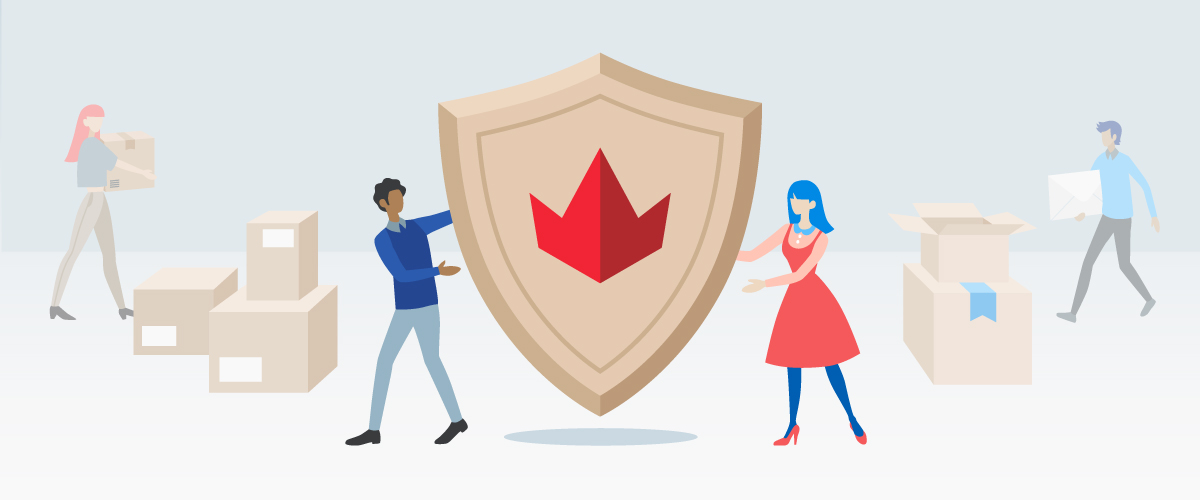It’s important to stay vigilant against phishing scams, especially in the ecommerce and shipping industry. To help protect your digital safety, we’ve compiled some top tips and best practices for avoiding security issues.
Phishing scams
A phishing scam is a fraudulent attempt to extract information and money from the target of the scam. While most phishing scams are sent via telephone or email, there has been a rise in attempts that occur via text/SMS.
These types of scams can appear like they are coming from a trusted source. For example, have you ever received a phone call from the Government of Canada stating you owe them money and must pay? Most commonly these messages will request information and/or assistance with a purchase or other similar task. Oftentimes, the sender will impersonate someone familiar or a well-known brand. Some common phishing tactics include using a misleading email address, changing the email name or working under an alias.
- Be sure to always check the email address or contact number.
- Remain vigilant and do not click on any links, attachments or forward any messages.
You should know that Chit Chats will never reach out to your recipients to ask for payments on a shipment. However, sometimes carriers or customs may contact recipients by phone or email if further details are required in order to deliver a shipment.
For more information on how to guard against phishing and other scams, please see these resources:
6 Ways to Keep Your Account Secure
These days you have passwords for everything from accessing your banking, watching your favorite streaming service, checking your email and shipping with Chit Chats. Since we rely so heavily on using passwords online, it’s important to keep them secure more than ever.
1. Choose a strong password
- As much as possible avoid words, especially connected to your life.
- Include numbers, symbols and capitalization whenever possible.
2. Avoid password reuse
- Having one password for all of your accounts means they’re all at risk if someone discovers that one password.
- Keep them unique and don’t use the same password for your account.
3. Change passwords regularly
- Keeping the same password in place for a long time provides a longer window for discovery.
- Change passwords regularly to avoid this.
4. Keep your passwords private
- Don’t write down your password where anyone else can see it, like a sticky note on your screen.
- Keep passwords private and safe.
5. Use a Password Manager
- Password security is important and there are many services that provide help if you struggle to keep track of your passwords but remember, vigilance is key. Find useful tools in our support article that can help.
- 1Password provides a quick way to see if your passwords have been previously compromised through their tool: Have I Been Pwned.
6. Enable Two-Factor Authentication (2FA)
- Enhance your account security by enabling two-factor authentication (2FA). When activated, you’ll need to enter a unique access code sent to your phone, along with your password, each time you sign in. This extra layer of protection helps prevent unauthorized access, even if someone else has your password.
- Upon activation, you’ll receive recovery codes—be sure to store them safely in case you lose access to your phone number.
- You can manage your 2FA settings anytime through your Account Settings.
Be sure to always log out of your accounts when you are finished. Account security is a serious matter. It is your responsibility to keep your password information private. If you suspect that there has been suspicious activity in any of your online accounts, you should take immediate precautions to update your password and report the incident. If you ever notice suspicious activity in your Chit Chats account, please contact us at support@chitchats.com.
